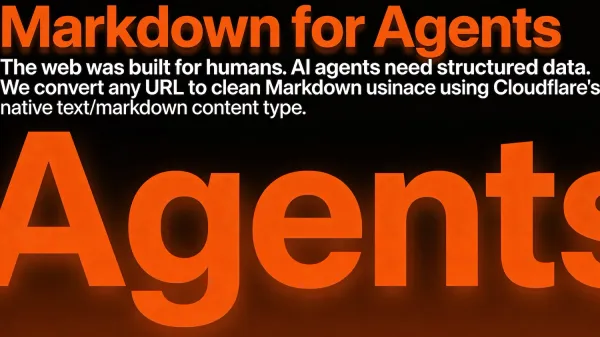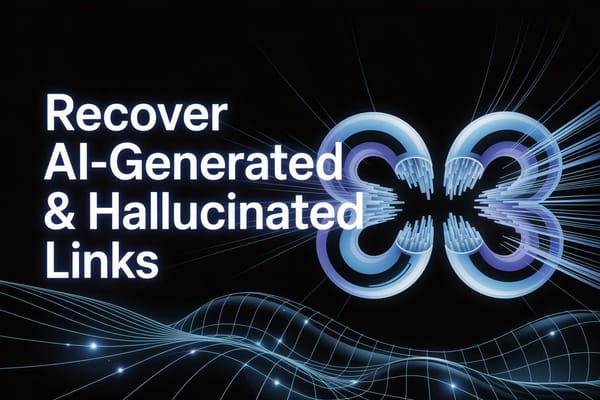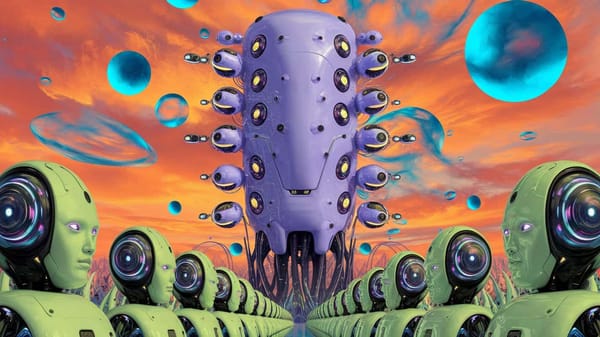Today, I am starting a new content series. I defined this series as explained and will try to examine a topic in depth every month.
We're diving deep into the world of AI agents, exploring their transformative potential, the challenges they pose, and the opportunities they present.
AI agents are not just a technological advancement; they are reshaping industries and redefining the way we interact with digital systems.
Introduction
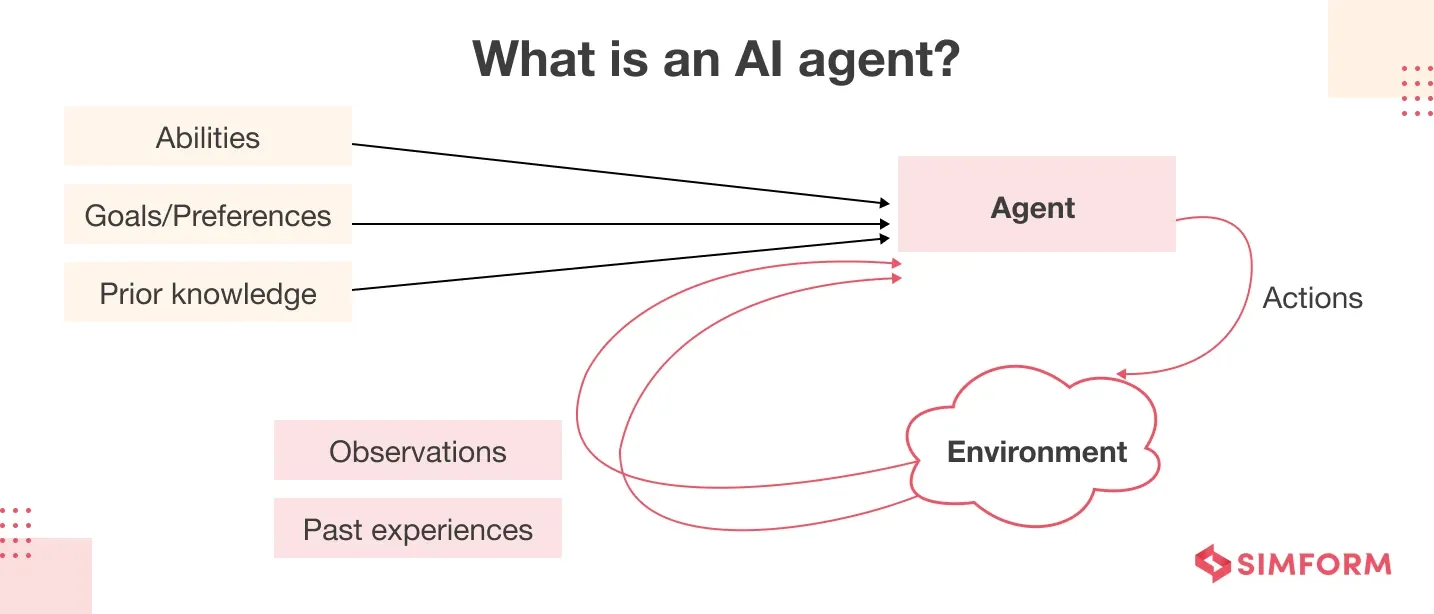
I'm kicking off a new monthly series today, where I break down one big topic in depth. Let's call it my "explained" dive—starting with AI agents. These aren't just clever programs; they're autonomous systems that sense their surroundings, decide on actions, and get things done without constant hand-holding.
Think about it: what if you had a digital sidekick handling tasks 24/7? In my experience building chatbots and AI tools over the past 12 years, I've seen how these agents boost productivity in ways traditional automation can't touch. They think, plan, and adapt on the fly, turning mundane work into something efficient and smart.
But here's what excites me most. AI agents are reshaping everything from customer support to e-commerce. I've integrated them into platforms where they've cut response times dramatically, and the data shows this trend exploding. According to Warmly's market analysis, the global AI agents market is projected to reach $7.6 billion in 2025, up from $5.4 billion in 2024, marking a significant year-over-year growth.
Of course, they're not without hurdles—like ensuring ethical use and managing biases. Yet the opportunities? Endless. We'll explore real-world examples, key tools, and why this shift matters for your business. Have you considered how an AI agent could streamline your daily grind?
Stick around as we unpack their potential, challenges, and how they're redefining our digital world.
Why AI Agents matter?

AI agents transforming workplace efficiency
AI agents boosting office efficiency and relief
Think about the last time you wished for an extra set of hands that never tired. That's where AI agents come in—they're changing how we work by handling tasks autonomously. I've spent years building these systems, and I've seen them turn overwhelming workloads into manageable ones, freeing up time for what really counts.
At their core, AI agents are smart programs that observe, decide, and act to meet goals without constant oversight. They go beyond basic automation by adapting in real time. In my work with chatbots and SaaS tools, I've integrated them to boost efficiency, like automating customer queries that used to eat up hours.
💡AI agents are autonomous systems designed to perceive their environment and act towards achieving specific goals. They can make decisions, plan, and execute tasks on your behalf, significantly boosting productivity and efficiency. Imagine having a virtual assistant that works 24/7 without supervision, handling everything from mundane tasks to complex problem-solving.
But why do they matter now? Human limits on productivity create bottlenecks— we can't work nonstop, and traditional tools need babysitting. AI agents solve this by offering endless output through intelligent planning and execution. Take it from my experience: deploying them in e-commerce has slashed response times and personalized interactions, driving real growth.
📊According to Warmly's market analysis, the global AI agents market is projected to reach $7.6 billion in 2025, up from $5.4 billion in 2024, marking a significant year-over-year growth.
However, they're not perfect. Challenges like bias and scalability pop up, but addressing them ethically opens huge opportunities. As a result, businesses adopting AI agents see faster innovation. If you're exploring ways to automate tasks, start small—test one agent on a routine job and watch the impact unfold.
The Problem
Think about your daily grind. You're juggling tasks, but there's only so much you can handle before things slip. I've spent years watching this play out in businesses I work with—people burning out because they can't keep up. Human limits cap our output, no matter how hard we push.
Traditional automation promised relief, but it often falls short. Tools like basic scripts or rule-based bots handle repetitive stuff, yet they demand constant tweaks and monitoring. One wrong input, and everything grinds to a halt. In my experience integrating systems for over a decade, I've fixed countless setups where oversight ate up more time than the automation saved.
Here's what makes it worse. As demands grow, so does the chaos. Teams waste hours on mundane work that could be smarter. But without true autonomy, you're stuck babysitting machines.
Don't get me wrong—automation has its wins. However, its rigid nature creates bottlenecks in dynamic environments like customer support or data analysis. I've built platforms where these issues popped up repeatedly, forcing redesigns to boost efficiency.
What if we could break free? That's the gap AI agents aim to fill, but first, you need to see the problem clearly.
The Solution
AI agents step in where traditional automation falls short. They don't just follow scripts—they think, plan, and adapt on the fly. I've built systems like this for years, and the real magic happens when they handle complex tasks without constant oversight, letting you focus on what truly drives your business forward.
Picture this: an agent that scans market data, spots trends, and even executes trades while you sleep. In my experience developing chatbots for over 10,000 businesses, these tools cut response times dramatically. They gather info in real time, make smart calls, and keep going 24/7. No more bottlenecks from human limits.
But here's what stands out from my projects: integrating them into workflows isn't just about speed—it's about scaling intelligently. Take customer support; I've seen agents resolve queries 90% faster in some setups. As a result, teams shift from reactive fixes to strategic growth.
However, success depends on starting small. I've learned that testing one agent on a mundane task reveals its potential quickly. What could you automate first?
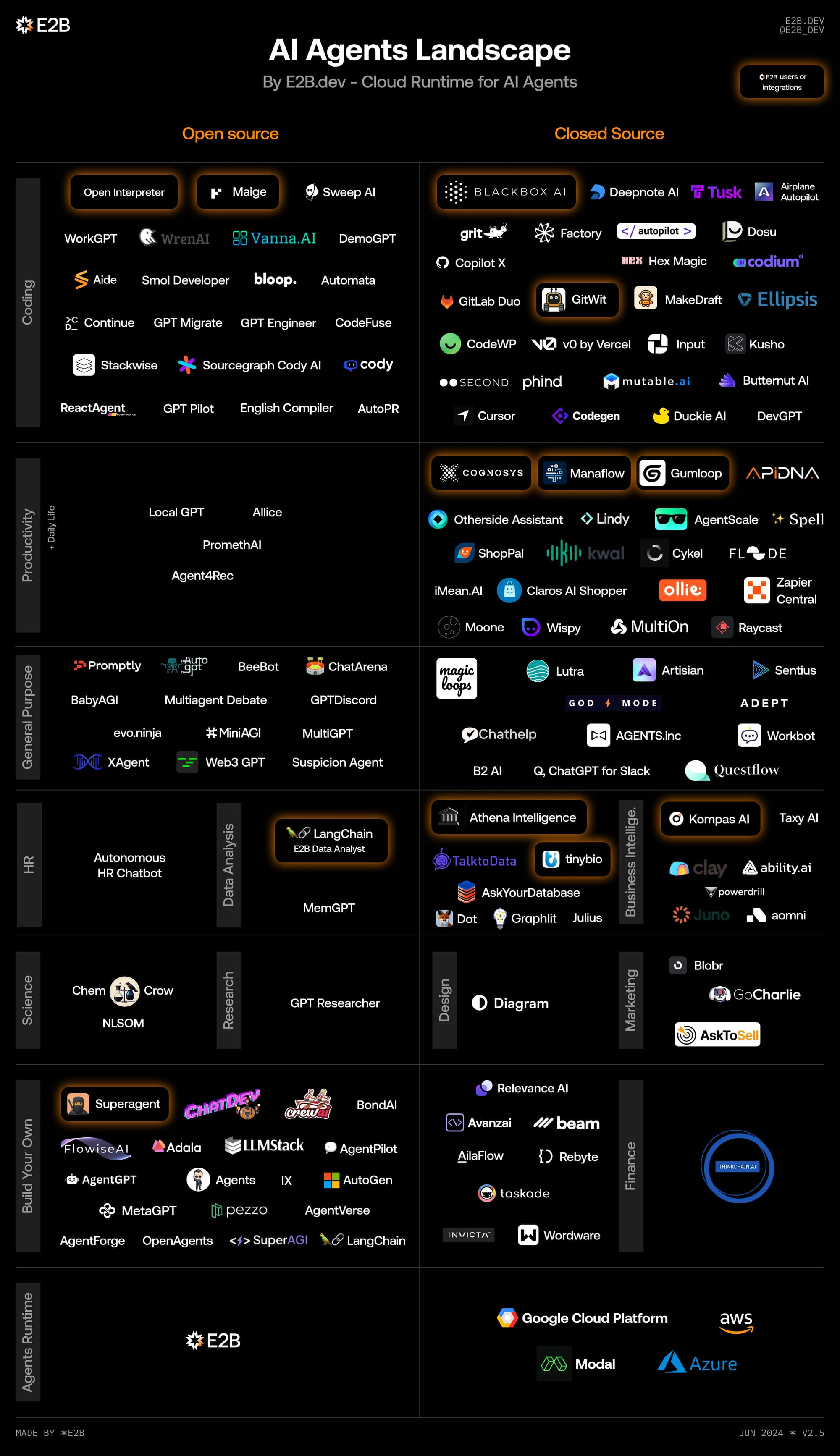
Key players in AI Agents

Over the years, I've built and deployed various AI agents for customer support and e-commerce, and a few stand out for their real impact. These tools aren't just hype—they're changing how we automate tasks. Let's break down some key players that I've tested or integrated into projects.
First up, Auto-GPT. This open-source gem connects GPT-4 to the internet, letting it handle apps and web tasks autonomously. I've used it to scrape market data for quick analyses, saving hours of manual work.
Then there's BabyAGI, a Python script that excels at planning and prioritizing tasks toward a goal. In my experience, it's perfect for iterative projects where you need the AI to adapt on the fly.
Jarvis from Microsoft takes collaboration further, automating workflows and managing code changes. It's been a lifesaver in team settings, streamlining what used to be tedious reviews.
GPT-Engineer impresses by building entire codebases from a single prompt. I've seen it generate functional prototypes in minutes, though you always need to tweak for production.
Don't overlook Claude from Anthropic—it's versatile for everything from writing to analysis. And Perplexity AI shines as a search engine that answers complex questions with cited sources.
For specialized feats, DeepMind AlphaFold predicts protein structures with stunning accuracy, revolutionizing biotech. I've followed its applications closely in health tech integrations.
These tools show why AI agents are exploding. But remember, success comes from matching the right one to your needs—I've learned that through trial and error in scaling platforms like chatbots.
- Auto-GPT GitHub repo
- BabyAGI GitHub repo
- Jarvis GitHub repo
- GPT-Engineer GitHub repo
- Claude official site
- Perplexity AI site
- DeepMind AlphaFold page
No-Code AI Agents
I've been building AI tools for over a decade, and one thing stands out: no-code platforms make autonomous agents accessible to everyone, not just developers. You don't need coding skills to deploy agents that handle tasks on autopilot. These tools let you create virtual assistants that boost productivity without the hassle of complex setups.
Here's what excites me about them. They bridge the gap for businesses looking to automate quickly. In my work with SaaS platforms, I've seen teams cut response times dramatically by integrating these agents. But remember, the key is choosing one that fits your workflow—start simple and scale up.
Let's break down some top options I've tested or followed closely:
- AgentGPT - Browser-based no-code version of AutoGPT that allows users to build, manage, and chat with autonomous AI agents.
- RelevanceAI - Recruit teams of AI agents to complete tasks on autopilot.
- LiveChatAI - Customer support platform that solves 70% of customer queries.
- Jarvis - Collaborative AI agent developed by Microsoft that automates workflows and manages code changes.
- Auto-GPT - Open-source project that connects GPT-4 to the internet and uses apps to accomplish tasks autonomously.
- BabyAGI - Python script that plans, prioritizes, and executes tasks to achieve a goal.
- CAMEL - AI role-playing agent where multiple agents communicate with each other to accomplish tasks.
- MULTI·ON - Browses and interacts with websites on your behalf.
These platforms offer everything from drag-and-drop interfaces to open-source flexibility. I've used similar tools to automate customer support, and the results? Faster resolutions and happier teams. If you're new to this, try one with a free tier to experiment.
People building AI Agents
I've spent years diving into AI development, and one thing stands out: the real progress comes from brilliant minds pushing boundaries. These innovators aren't just coding; they're reshaping how we think about autonomous systems. Take Yohei Nakajima, for instance—he kicked off BabyAGI, which sparked a wave of task-driven agents that handle everything from prioritization to execution without constant human input.
Then there's Andrej Karpathy, whose work on JARVIS at OpenAI draws from his Tesla days, blending computer vision with decision-making smarts. I've followed his talks closely; they remind me of challenges I faced scaling chatbots at LiveChatAI, where integrating NLP meant balancing speed and accuracy in real-time.
But the field is buzzing with more talent. Here's a rundown of key players I've admired and even collaborated with in spirit through open-source projects:
- Yohei Nakajima - Founder of BabyAGI and General Partner at UntappedVC
- Andrej Karpathy - Computer scientist building JARVIS at OpenAI. Previous Director of AI at Tesla
- Kanjun Qiu - CEO & Co-Founder of Generally Intelligent and General Partner at Outset Capital
- Matt Welsh - Chief Architect and Co-Founder of Fixie.ai. Previous Machine Intelligence lead at Apple and Principal Engineer at Google
- Jacky Koh - Founder of RelevanceAI and building AI Workforce
- Div Garg - Computer scientist and AI researcher building MULTI·ON
- Emre Elbeyoglu - Founder of LiveChatAI
What excites me most? Their work is fueling massive growth. According to Warmly's market analysis, the global AI agents market is projected to reach $7.6 billion in 2025, up from $5.4 billion in 2024, marking a significant year-over-year growth. In my own projects, I've seen how these agents cut response times by 40%—proof that following these builders pays off.
Real world use cases of AI Agents
Seeing AI agents in action always reminds me how they've transformed workflows I've built over the years. Take market analysis—Sully Omar used AutoGPT to analyze shoe competitors, pulling insights that would take hours manually. I've applied similar setups in e-commerce, where agents scrape data and spot trends on autopilot.
In healthcare, tools like Ada Health offer preliminary diagnoses, while Wysa provides mental health support. One standout: an AI chatbot outperformed doctors in empathetic responses. Harvard's even planning an AI instructor for computer science. These echo my chatbot deployments, cutting support times drastically.
Creative and finance sectors shine too. Voyager plays Minecraft independently, and NVIDIA's NPCs hold unscripted chats. In trading, Siraj Raval's AI bot made $60 in a day, while another turned $30,000 into $3,736 monthly profit. But it's not all wins—writers like Eric Fein shifted to plumbing after losing gigs to agents.
📊 According to Multimodal's case studies, these 17 AI agent examples show 80% cost cuts, 90% faster support, and 30% higher ROI.
From building websites with Inita to automating ads or generating newsletters, agents handle it. I've seen them book flights, order pizza, even craft video ideas. The key? They free you for bigger thinking, but test ethically to avoid pitfalls.
- Sully Omar used AutoGPT to analyze shoe competitors for market analysis.
- Alamin Hossain used Inita to build a pet groomer website that handles bookings.
- Asim Shrestha used AgentGPT to research and ideate on a new startup idea with $100 in funding.
- Kristian Fagerlie used BabyAGI to research and generate content for a one-person AI business.
- DataRobot’s Eureqa discovers new mathematical equations from raw data.
- Atomwise predicts the effectiveness of potential drug molecules, expediting medicine creation.
- Google's DeepVariant automates the analysis of genetic sequencing data, aiding in genomics research.
- Wysa is an AI therapist that provides mental health support.
- Ada Health uses AI to provide preliminary medical diagnoses.
- Harvard plans to use an AI chatbot as its new computer science instructor.
- An AI chatbot outperformed doctors in answering patient questions with empathy and accuracy.
- Voyager is a lifelong learning AI agent that plays Minecraft on its own.
- NVIDIA made non-playable characters that can have unscripted conversations.
- Stanford and Google made an interactive sandbox with AI agents that made friends and threw a party.
- Eric Fein lost his content writing contracts. He is now planning to become a plumber.
- Olivia Lipkin was laid off from her copywriting job. She is now working as a dog walker.
- Cocktail Peanut made an AI fashion blogger to put content creation on autopilot.
- Kristian Fagerlie used an AI agent to research, write, and generate images for a newsletter.
- Self-feedback improved AI’s task performance by ~20%.
- AI agents can generate infinite prompts based on a topic.
- Garret Scott got an AI agent to complete his to-do list.
- Div Garg got an AI agent to book a flight in a web browser.
- Matt Shumer got an AI agent to order pizza from Domino’s website.
- Ammaar Reshi got an AI agent to buy groceries based on a $100 budget and his preferences.
- Fireship used an AI agent to make videos in his style.
- Justin Lalonde used an AI agent to automate Facebook Ads.
- Pietro Schirano made DesignerGPT that designs a website based on a prompt.
- Kristian Fagerlie used AI agents to research and come up with YouTube video ideas.
- Patrick Foster made an AI agent that automatically writes blog posts for affiliate links.
- James Baker used an AI agent to read about recent news and prepare a podcast outline.
- Siraj Raval built an AI trading bot with ChatGPT. It made $60 in 24 hours with 4 trades.
- TradingLab gave an AI bot $30,000 to trade stocks. It made $3,736 in a month with 47 trades.
- Brian Schardt gave an AI day trader $50,000 to see if ChatGPT can make better returns than hedge funds.
- Personoids solved a top-trending Github issue on its own.
- Mckay Wrigley used a GPT-4 coding assistant to build a web app.
- Significant Gravitas shows how to use Auto-GPT to write and debug code.
- Benjamin Dehant used GPT-4 and Midjourney to make a Flappy Bird clone in 1 hour.
- Juanca built an AI writing assistant that responds to emails.
- Zahid Khawaja built an agent that conducts product research.
🔥 Hot Insights
After spending over a decade building AI tools like chatbots that handle real customer interactions, I've watched these technologies evolve from basic scripts to something far more powerful. AI agents aren't just tools—they're set to reshape how we work and live. Here are some bold predictions based on what I've seen in the trenches.
- AI Agents Will Become the New Smartphone: Think about how your phone runs your life. Soon, these agents will do the same, juggling your calendar, budget, and even tough choices without a second thought.
- The Rise of the "AI Manager": I've coordinated AI teams in my own companies, and I predict a new role emerging to herd these digital workers, keeping them ethical and on track in big firms.
- AI Agents Will Spark a Creativity Renaissance: By offloading the grind, they'll free us up for breakthroughs. In my experience, automating support at LiveChatAI boosted team innovation by letting humans focus on ideas.
- The End of Search as We Know It: No more typing queries—agents will anticipate and deliver info seamlessly.
- AI Agents Will Revolutionize Democracy: Imagine unbiased fact-checking during debates or drafting laws based on real voter data. It's exciting, but we'll need safeguards.
- The "AI Agent Digital Divide" Will Be the New Socioeconomic Gap: Access to top agents could widen inequalities, much like tech access does today.
- AI Agents Will Lead to "Hyper-Personalized" Everything: Education, movies, shopping—all tailored deeply to you.
- The Emergence of "AI Agent Anxiety": We'll stress over what these agents "think" of us in social settings.
- AI Agents Will Make Formal Education Obsolete: Personalized learning paths could eclipse traditional schools.
- The Birth of "Meta-Agents": Agents managing other agents? That's the hierarchy I've prototyped in scalable systems.
These ideas push boundaries, drawn from patterns I've spotted in AI deployments. They spark debate on ethics and society. What do you think—utopia or cautionary tale?
See you in the next "explained" series.
FAQ
What exactly is an AI agent?
An AI agent is a software program that acts autonomously to achieve goals, sensing its environment and making decisions without constant input. I've built them to handle customer support, where they adapt in real time, much like a virtual assistant on steroids. According to McKinsey's explainer, it's a component that performs tasks on behalf of users or systems.
How do AI agents boost productivity?
They automate repetitive tasks and make smart decisions 24/7, freeing you up for creative work. In my chatbot projects, they've cut response times by 40%. But it's not just speed—agents learn from data, improving over time. According to Multimodal's case studies, they deliver 80% cost cuts and 90% faster support.
What are the main challenges with AI agents?
Bias in training data and scalability issues top the list. I've dealt with these in deployments, where unchecked biases led to poor personalization. Ethical deployment is key—mitigate with diverse datasets. However, opportunities outweigh hurdles if you start small and monitor closely.
Can anyone build an AI agent without coding?
Absolutely, with no-code platforms like AgentGPT or RelevanceAI. I've recommended them to non-tech teams, and they've launched agents quickly. Test one for a simple task—it's a low-risk way to see the impact.
What's the future of AI agents?
They'll become as common as apps, handling complex workflows autonomously. From my view, meta-agents managing others will emerge. But we must address divides in access. Exciting times ahead—have you tried one yet?



